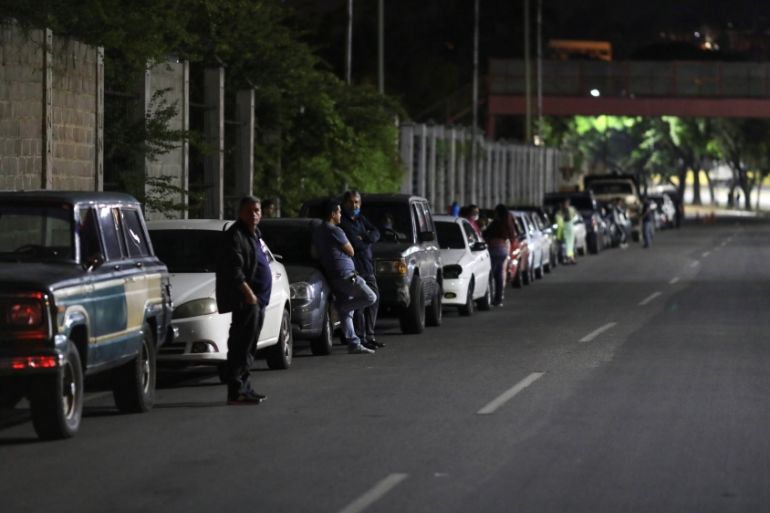Chinese firms may halt use of oil tankers that visited Venezuela
The move is meant to avoid disrupting operations if US blacklists more ships for trading with Caracas, Reuters reports.

Chinese oil companies may soon decline to charter any tanker that has visited Venezuela in the past year to avoid disruption to operations if the United States blacklists more ships for trading with Caracas, four shipping sources told Reuters News Agency on Tuesday.
The US government is seeking to choke Venezuelan oil exports to starve the government of socialist President Nicolas Maduro of its main source of revenue. Existing sanctions have cut Venezuelan exports sharply, but Maduro has held on.
Keep reading
list of 3 itemsUS sanctions four shipping firms for transporting Venezuelan oil
Oil rises: OPEC+ to talk soon about steadying global markets
Washington may tighten sanctions by adding dozens more tankers to an existing blacklist, US sources told Reuters on Friday.
That has prompted Chinese oil firms to consider dropping the use of tankers that have called at Venezuelan ports at any time during the last 12 months, said the sources, who spoke on condition of anonymity due to the sensitivity of the issue.
“There is a sense of growing risk now with such tankers,” one of the sources said.
Leading Chinese oil companies Unipec, PetroChina and CNPC could not immediately be reached for comment.
Unipec last year banned the use of vessels linked to Venezuelan oil exports, although it is unclear how strictly that was enforced. US major Exxon Mobil Corp imposed a similar ban.
Oil companies and merchants worldwide – not just in China – are becoming more wary of vessels that have recently transported Venezuelan oil, sources said.
“Anything on the potential sanctions list will just become toxic,” a source at a top oil trading company said. “No one will touch it until it’s clear what the rules will be.”
Broker Clarksons Platou Securities estimated that 77 tankers had called at Venezuela’s main oil ports since December alone, more than 2 percent of the global fleet, and so were potentially at risk of sanctions.
Increased sanctions would have a knock-on effect on the rest of the oil tanker market as oil companies and merchants scramble to swap out sanctioned vessels for others.
A decision late last year by the US government to sanction two units of the Chinese tanker company COSCO caused freight rates to hit record highs and roiled global oil trade.